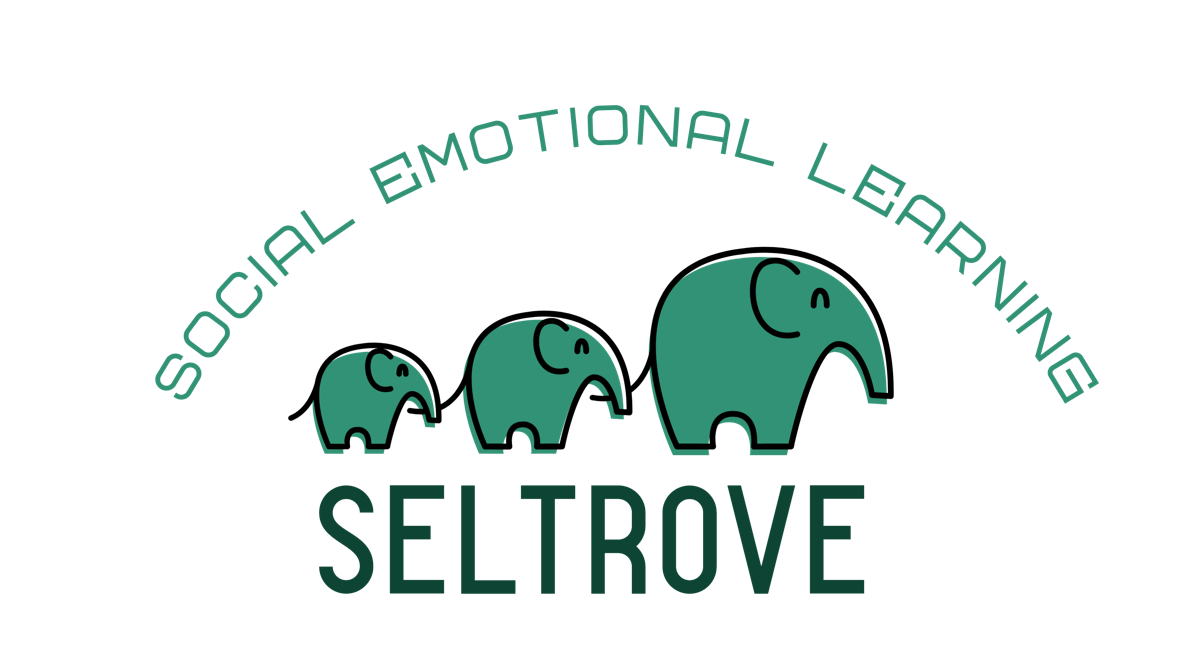
The Five Core Competencies of Social and Emotional Learning (SEL)
1. Self-Awareness: Understanding Yourself
🔍 Definition:
Self-awareness is the ability to recognize one’s own emotions, thoughts, and values, and how they influence behavior. It also includes understanding personal strengths and weaknesses, cultivating a growth mindset, and developing self-confidence.
💡 Why It Matters:
Helps students and professionals identify what motivates them.
Encourages a positive self-image and emotional intelligence.
Supports better goal-setting and personal development.
📌 How to Develop Self-Awareness:
✅ Journaling or self-reflection exercises.
✅ Naming emotions to build emotional literacy.
✅ Encouraging feedback from teachers, peers, or mentors.
🔗 Related Resource:How to Foster Self-Awareness in Students
2. Self-Management: Regulating Emotions and Behavior
🧠 Definition:
Self-management refers to the ability to regulate emotions, control impulses, and manage stress while maintaining motivation and achieving goals. It involves discipline, resilience, and adaptability.
💡 Why It Matters:
Reduces stress, anxiety, and emotional overwhelm.
Improves focus, productivity, and academic/work performance.
Strengthens the ability to set and pursue long-term goals.
📌 How to Develop Self-Management:
✅ Teach breathing techniques and mindfulness exercises.
✅ Encourage students to create SMART goals (Specific, Measurable, Achievable, Relevant, Time-bound).
✅ Implement strategies for managing stress, like physical activity or creative outlets.
📊 Visual: "Daily Self-Regulation Checklist"
🔗 Related Guide:5 Strategies to Strengthen Self-Management
3. Social Awareness: Understanding & Empathizing with Others
🤝 Definition:
Social awareness is the ability to empathize with others, recognize social cues, and appreciate diverse perspectives. It includes cultural competence, respect for different backgrounds, and a strong sense of inclusion and belonging.
💡 Why It Matters:
Encourages kindness, inclusion, and equity.
Helps build stronger relationships in schools, workplaces, and communities.
Reduces bullying, discrimination, and misunderstandings.
📌 How to Develop Social Awareness:
✅ Teach active listening and perspective-taking.
✅ Introduce literature and media that reflect diverse experiences.
✅ Encourage community service and social justice projects.
📊 Visual: "Steps to Cultivate Empathy in Daily Life"
🔗 Related Article:Why Social Awareness is Essential for Community Building
4. Relationship Skills: Building & Maintaining Strong Connections
💬 Definition:
Relationship skills involve communicating effectively, actively listening, resolving conflicts, and working well in teams. This competency fosters trust, cooperation, and leadership.
💡 Why It Matters:
Strengthens friendships, professional networks, and family bonds.
Enhances teamwork, leadership, and conflict-resolution skills.
Helps individuals navigate healthy romantic and professional relationships.
📌 How to Develop Relationship Skills:
✅ Practice role-playing exercises for conflict resolution.
✅ Teach effective communication techniques (e.g., "I" statements, active listening).
✅ Encourage participation in collaborative group projects.
💬 Interactive Element: "Role-Playing Activity: Resolving a Conflict with a Friend"
🔗 Related Guide:Teaching Relationship Skills in Classrooms
5. Responsible Decision-Making: Making Thoughtful & Ethical Choices
⚖ Definition:
Responsible decision-making involves making ethical, constructive, and well-thought-out choices that consider personal values, social norms, and potential consequences.
💡 Why It Matters:
Encourages critical thinking and problem-solving.
Helps individuals navigate complex moral dilemmas.
Promotes accountability and integrity in personal and professional life.
📌 How to Develop Responsible Decision-Making:
✅ Teach problem-solving frameworks (e.g., pros/cons lists, cost-benefit analysis).
✅ Use real-world scenarios to analyze the consequences of different choices.
✅ Encourage ethical debates and discussions in schools and workplaces.
📊 Visual: "Decision-Making Flowchart for Everyday Situations"
🔗 Related Article:How to Teach Decision-Making to Students
📌 Take Action: Build SEL Skills Today!
The five core competencies of SEL are fundamental to personal growth, career success, and strong communities. Whether you're an educator, parent, student, or professional, SEL skills can transform your life and interactions with others.
📥 Download Our Free SEL Implementation Guide – Get expert strategies, lesson plans, and tools to integrate SEL into your daily life.
🔗 Join Our SEL Community – Connect with educators, professionals, and families who are using SEL to make a difference!
Would you like me to draft another section, such as How to Implement SEL in Schools & Communities? 🚀
Want to learn more?
Access classroom-ready turnkey resources for your SEL classroom. Our SEL resources are crafted to be both engaging and interactive, aimed at nurturing empathy, compassion, and well-being among students. With a commitment to creating inclusive and kind classroom environments, our suite of print and digital materials is designed to support educators in this mission
Products
Teacher Resources
Get in touch
-
516 North Ogden Ave, Suite 111 Chicago, IL 60642
-
andy@seltrove.com
-
312-224-2536